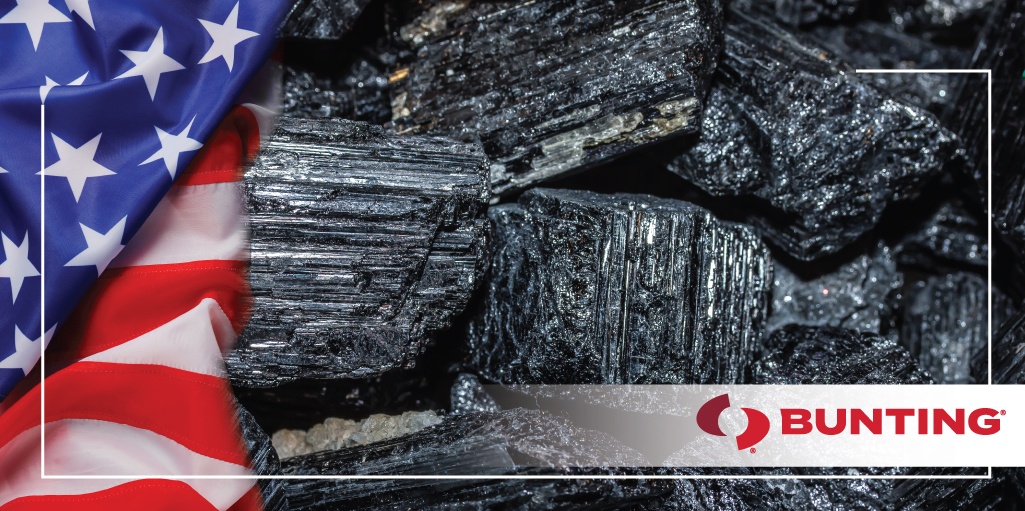In recent years, the United States government has placed a high priority on strengthening the country’s domestic supply of rare earth minerals. For decades, China has dominated the global economy as the leader in the mining, processing, and sale of rare earth minerals. Notably, China also has significant influence on the manufacturing of rare earth products, particularly valuable neodymium iron boron (NdFeB) magnets and samarium cobalt (SmCo) magnets. Because rare earth minerals and rare earth magnets in particular are essential resources for national defense applications, the U.S. government is engaging in bipartisan efforts to strengthen the domestic rare earth supply chain.
In a 2019 directive to the Pentagon, President Trump instructed the Pentagon to focus on improved procurement methods for samarium cobalt, a rare earth magnet that is prized for its ability to withstand high temperatures. Samarium cobalt magnets are commonly used in military jets, smart bombs, and precision-guided missiles, among other applications. In Trump’s letter, he affirmed “’These proposed initiatives are essential to the national defense,” and ordered the Department of Defense to develop and purchase equipment that would boost the U.S. output of samarium cobalt magnets for use by the military.
After President Biden took office in January 2021, one of his first priorities was issuing an executive order addressing the rare earth mineral supply chain. The executive order stated, “The Secretary of Defense (as the National Defense Stockpile Manager), in consultation with the heads of appropriate agencies, shall submit a report identifying risks in the supply chain for critical minerals and other identified strategic materials, including rare earth elements (as determined by the Secretary of Defense), and policy recommendations to address these risks.”
Interest in rare earth minerals has not been limited to the executive branch. Congress has also begun to put forth bipartisan legislation aimed at improving the U.S. domestic rare earth supply chain. Most recently, H.R. 2688 was introduced on April 20, 2021 by Rep. Lance Gooden (R, TX) “ To amend the Internal Revenue Code of 1986 to permanently allow a tax deduction for the mining, reclaiming, or recycling of critical minerals and metals from the United States, and to support the development of domestic supply chains for rare earth elements and other critical materials essential to United States technology, manufacturing, energy, healthcare and advanced medical devices, broadband infrastructure, transportation, and national defense.” The bill is co-sponsored by Rep. Guy Reschenthaler (R, PA), Rep. Vicente Gonzalez (D, TX), and Rep. Henry Cuellar (D, TX).
Most recently, on February 22, 2022, President Biden announced that “the Department of Defense’s Industrial Base Analysis and Sustainment program has awarded MP Materials $35 million to separate and process heavy rare earth elements at its facility in Mountain Pass, California, establishing a full end-to-end domestic permanent magnet supply chain.”
Bunting-DuBois has many years of experience creating custom magnets and magnetic assemblies used in defense and aerospace applications.
For years, we have carefully constructed our supply chain to avoid total reliance on China, which allowed us to maintain steady operations despite the major supply chain disruptions caused by COVID-19 in early 2020. For more information about our capabilities regarding custom magnets and magnetic assemblies for defense and aerospace applications, contact us today.

